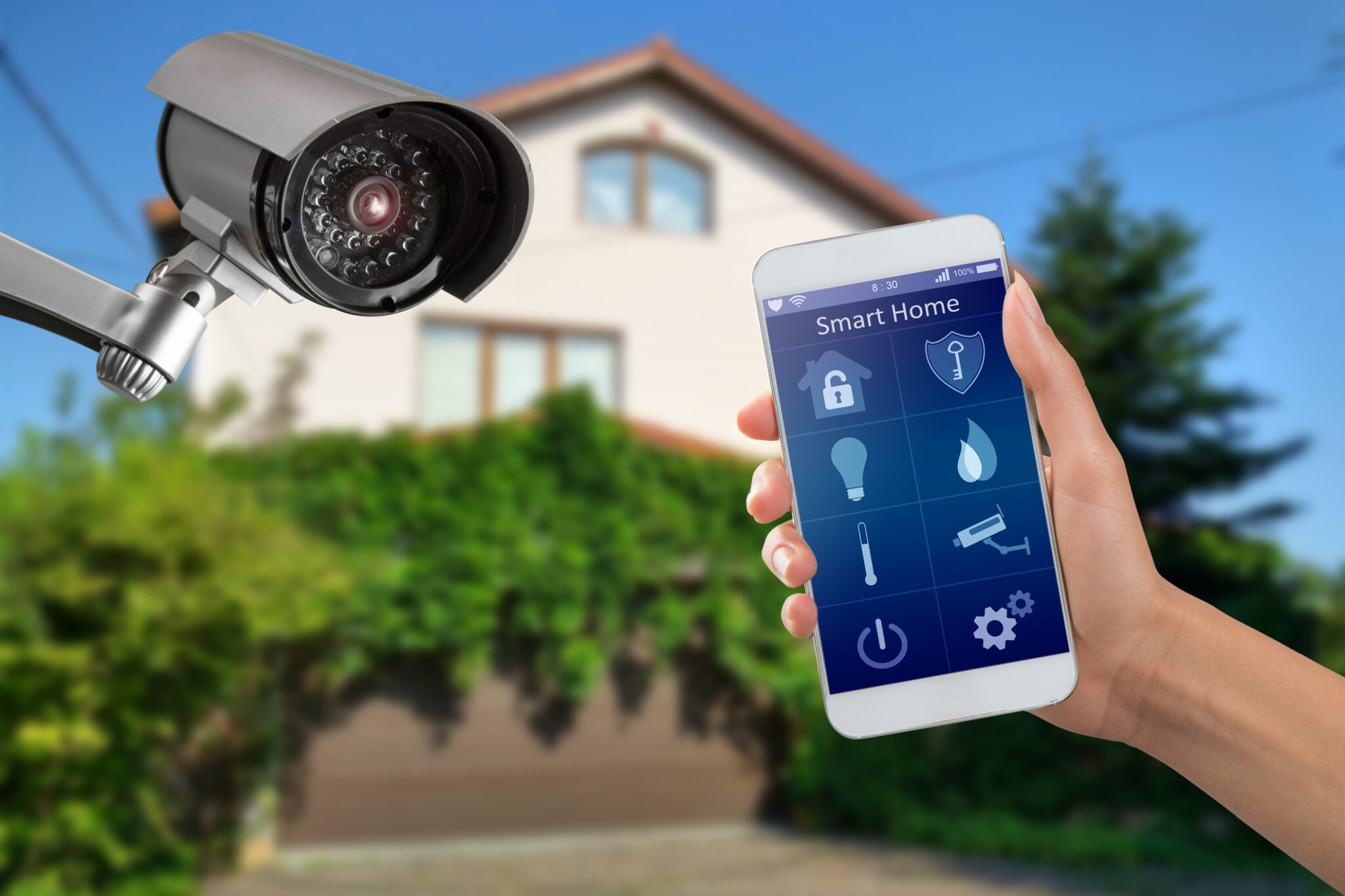The Legalities of Surveillance Cameras at Vacation Properties

Surveillance cameras at vacation properties can enhance security, protect property, and offer peace of mind for both property managers and guests. However, navigating the legalities surrounding their use is essential to avoid privacy violations, maintain trust, and ensure compliance with local laws.
This guide explores the key legal considerations for installing and using surveillance cameras at vacation properties, helping short-term rental property managers protect their investments while respecting guest privacy.
Are Surveillance Cameras Legal at Vacation Properties?
The legality of surveillance cameras at vacation properties depends on federal, state, and local laws, as well as the location and intended use of the cameras.
- Public vs. Private Areas: Cameras are generally legal in public areas, like driveways, entryways, or outdoor spaces, where there is no expectation of privacy. However, placing cameras in private areas, like bedrooms, bathrooms, or inside living spaces, is strictly prohibited.
- State Laws Vary: Some states have stricter surveillance laws than others. For instance, in California, it’s illegal to record audio without consent, while other states may have looser regulations.
- Disclosures Are Key: Transparency is crucial. Most jurisdictions require property managers to disclose the presence and purpose of surveillance cameras to avoid legal complications.
By understanding these distinctions, property managers can implement surveillance solutions that enhance security without crossing legal or ethical boundaries.
Where Can Surveillance Cameras Be Placed?
Determining appropriate placement for surveillance cameras at vacation properties is essential to balance security with guest privacy.
Permitted Areas:
- Entryways and Doorways: Monitoring who enters and exits your property can deter theft or unauthorized access.
- Parking Areas: Protect guest vehicles and your property by keeping an eye on parking spaces.
- Outdoor Spaces: Cameras in outdoor areas like patios or backyards are generally permissible, provided they don’t infringe on neighboring properties or indoor privacy.
Prohibited Areas:
- Bedrooms and Bathrooms: These are private spaces where guests have a reasonable expectation of privacy, and surveillance is not allowed under any circumstances.
- Living Areas: While some property owners may argue for cameras in living rooms for security, this is typically viewed as an invasion of privacy and is best avoided.
Tip: Aim for a balance between visibility and discretion. Cameras should be clearly visible to deter unwanted behavior but positioned respectfully to avoid discomfort.
The Importance of Guest Privacy
Privacy is a top concern for guests when booking vacation rentals. Ensuring your surveillance practices respect their boundaries can build trust and prevent legal issues.
- Inform Guests in Advance: Include clear disclosures about camera placement in your rental listing and house rules. This transparency reassures guests and protects you from disputes.
- Label Cameras Clearly: If cameras are visible on the property, label them with signs to indicate active monitoring. This not only adds transparency but also enhances the deterrent effect.
- No Hidden Cameras: Hidden cameras are a major privacy violation and can lead to legal penalties and reputational damage. Always use visible, disclosed equipment.
When privacy is prioritized, guests are more likely to feel safe and comfortable staying at your property.
What About Audio Recording?
Audio surveillance introduces additional legal complexities. In many jurisdictions, recording audio without consent is prohibited, even in areas where video surveillance is allowed.
- One-Party vs. Two-Party Consent States: In one-party consent states, only one person involved in the conversation needs to consent to audio recording. In two-party consent states, all participants must agree to the recording.
- Disable Audio When Possible: Unless absolutely necessary, it’s best to avoid audio recording altogether to sidestep potential legal issues.
Understanding these nuances ensures your property remains compliant while offering effective security measures.
Legal Requirements for Disclosing Surveillance
Full disclosure is not just a legal obligation; it’s also a best practice for maintaining positive guest relationships.
Disclosure Checklist:
- Rental Listings: Clearly state in your online listing that surveillance cameras are present and specify their locations.
- Pre-Stay Communication: Reinforce this information in your welcome emails or during the booking process.
- On-Site Notices: Place visible signs on the property to inform guests about active surveillance.
Transparent communication reassures guests and ensures you meet legal requirements.
How to Ensure Compliance with Local Laws
Since laws governing surveillance cameras vary by location, property managers must stay informed about applicable regulations.
- Consult Local Authorities: Contact your local government or legal professionals to understand specific surveillance laws in your area.
- Regularly Review Regulations: Surveillance laws may change over time, so it’s essential to stay updated.
- Follow HOA Rules: If your property is part of a homeowner’s association, ensure your surveillance practices comply with their guidelines.
Remaining proactive about legal compliance not only protects your property but also safeguards your reputation as a responsible host.
Ethical Considerations for Using Surveillance Cameras
Beyond legal requirements, ethical practices play a significant role in the successful use of surveillance cameras at vacation properties.
- Respect Guest Boundaries: Avoid intrusive placements, even in areas where they might be legally allowed.
- Limit Access to Footage: Restrict access to surveillance footage to authorized individuals only and ensure it’s stored securely.
- Delete Footage Promptly: Set a clear policy for deleting footage after a specified period, unless required for legal purposes.
Adopting ethical practices demonstrates your commitment to guest well-being and fosters trust.
Best Practices for Property Managers
To make the most of surveillance cameras at vacation properties, follow these best practices:
- Choose Reliable Equipment: Invest in high-quality cameras that provide clear footage and come with tamper-proof features.
- Use Secure Storage: Opt for encrypted cloud storage to prevent unauthorized access to footage.
- Provide Contact Information: Offer guests a way to reach you if they have questions or concerns about surveillance during their stay.
By implementing these best practices, property managers can ensure that surveillance cameras enhance security without causing unnecessary conflict.
Using surveillance cameras at vacation properties can be a valuable tool for enhancing security and peace of mind. However, it’s critical to navigate the legal and ethical considerations carefully. From understanding local laws to prioritizing guest privacy and maintaining transparency, property managers can create a safe and trustworthy environment for their guests.
At Safely, we help short-term rental property managers navigate the complexities of managing vacation properties. From expert advice on security practices to commercial guest screening and rental insurance, we’re here to support your success.






